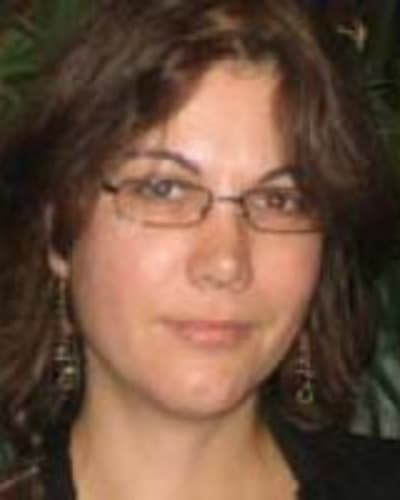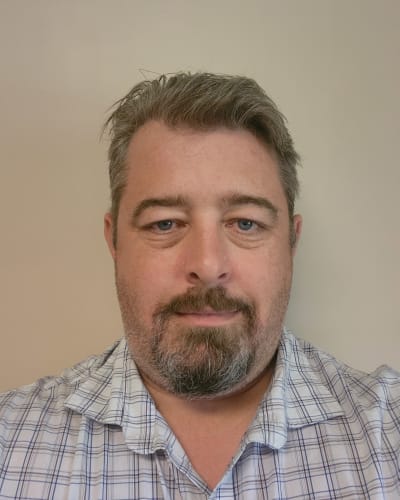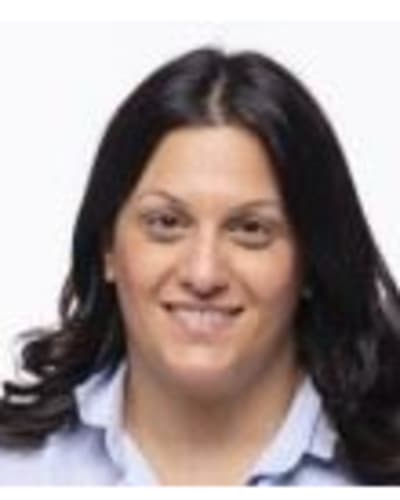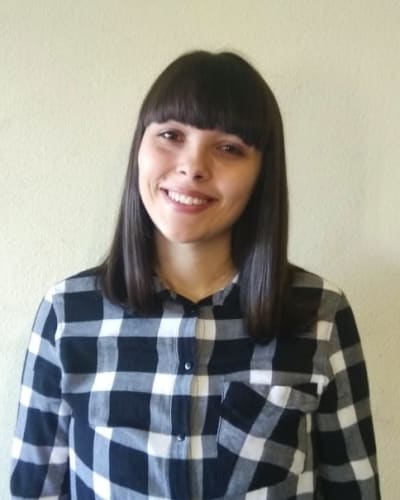Best Practices Part 2
- Starts at
-
05 Oct 22 15:30 UTC - Finishes at
-
05 Oct 22 17:15 UTC - Venue
- Virtual Conference Room A
- Moderator
- Imma Subirats Coll
Moderator
-

Imma Subirats Coll
Food and Agriculture Organization of the United Nations (FAO)
Imma Subirats is a senior knowledge and information management officer at the Food and Agriculture Organization of the United Nations (FAO). She currently leads three FAO programmes (a) the AGROVOC thesaurus, (b) the International System for Agricultural Science and Technology (AGRIS) and (c) the Access to Global Online Research in Agriculture (AGORA) with the objective to enhance accessibility and visibility to knowledge, information and data produced by FAO Member Countries. To achieve this goal, capacity development activities targeting researchers, librarians, practitioners, and policy makers are organize by Imma and the team she manages.
Her areas of interest include library and information science, open access, open science, research data, linked open data, semantic web, knowledge organization systems, metadata, multilingualism, knowledge management and sharing principles. She is also serving as Chair of the Improving Global Agricultural Data (IGAD) Community of Practice at the Research Data Alliance (RDA), formerly called the Interest Group on Agricultural Data (IGAD), and managing the Agricultural Information Management Standards (AIMS) Community of Practice.
Presentations
(Meta)data Usage in Agriculture: Challenges and Solution Approaches within a Domain of Domains
Agriculture currently faces numerous challenges on a global level: There is a need to produce and deliver enough food for a still growing world population in a sustainable manner without depleting natural resources. To fulfill that task, it relies on knowledge from a number of scientific disciplines including for example biology, geosciences, economic and social sciences, and engineering domains like machinery construction. Many of the questions currently arising can only be addressed by combining data from these different disciplines coming from distributed, heterogenous sources. From the information management perspective, agriculture is thus not a single domain that could be covered by a domain data model, but rather a domain of domains. Data integration is therefore a challenge. Recent developments around flexibly combinable RDF descriptions of (meta)data, provide solution approaches but are currently not yet consolidated and widespread enough. However, within the European GAIA-X cloud infrastructure as well as Research Data Management Initiatives like the German National Research Data Infrastructure (NFDI) such approaches are used and tested also within an agricultural context. Data catalogues using combinations of different vocabularies (Dublin Core, DCAT, schema.org and more) are currently being established. The contribution highlights a few aspects of reuse practices applied like for example subproperty hierarchies for identifiers, using SKOS concepts in property ranges, how to deal flexibly with depth of data provided etc. That way, a higher degree of interlinkage between (meta)data systems can be achieved that especially helps cross-domain applications like the ones prevalent in agriculture.
-

Daniel Martini
KTBL, Germany
Daniel Martini has studied agricultural engineering with a focus on soil science at the University of Hohenheim. He is working at KTBL – a non-profit association in Germany mainly concerned with knowledge transfer in agriculture – since 2005 on data exchange, information management and processing in agriculture. He has been doing systems analysis and design as well as drafting and implementing protocols and services, mainly based on semantic technologies. He is also active in standardization in that area. Since 2014, he is the deputy head of the digital technologies department at KTBL, responsible for research and development in the area of information management. He is involved in a number of projects and initiatives on application of semantic web technologies in agriculture and research data management including smaller national innovation projects but also infrastructure projects like GAIA-X or the national research data infrastructure in Germany. His team is also supporting conceptual, editorial and technical work on the AGROVOC thesaurus, which is the largest multilingual agricultural thesaurus and linked data set based on the SKOS specification. For that purpose, his team cooperates closely with the AGROVOC core team at the United Nations Food and Agricultural Organization (FAO).
Best Practices and Lessons Learned Databases versus actively changing rules and SOPS as they are identified.
How to identify lessons learned and actively use them instead of lossing them to the lessons learned database.
-

John Antill
US Army Expeditionary Workforce
John Antill is currently a Knowledge Manager at US Army Expeditionary Workforce. With over 14 years of progressively responsible knowledge management experience in complex technical roles – both military and civilian – requiring exceptional project coordination, problem solving, and management skills, John has established a track record of success by leveraging a collaborative leadership style to accomplish all short- and long-range objectives. An engaging and articulate communicator, he is able to clearly convey complex technical information and propose novel solutions to build consensus with key project stakeholders, including high-value clients and executive leadership. Furthermore, his consistent focus on remaining at the forefront of rapidly evolving technology allows him to drive enterprise-wide innovation and maintain a competitive advantage.JOhn is on the Board of Minority Empowerment Through Technology which provides underserved college STEM students to get the technology they need to be successful in their courware and projects.John Holds a Master of Science in Knowledge Management from Kent State university and a Master of Certified Knowledge Management from the KMInstitute.
Building a core metadata model for statistical data: the IMF case
A core metadata model allows for harmonizing diverse data and data sources, offering end users a unified way to access their data. At the IMF, this core metadata modeling work focuses on capturing core metadata elements across the IMF, covering diverse business cases, and building on enterprise vocabularies, following established market standards (Dublin Core / DCAT/ SDMX Data Structures etc.). In this presentation, we will focus on how combining a core metadata model and the promise of a unified discovery interface and search help manage IMF data in the short and medium term.
-

Denisa Popescu
International Monetary Fund
Denisa Popescu is a Senior Data Architect at the International Monetary Fund with over 20 years of experience in multi-format data architecture, reference data and taxonomies management, semantic technologies and enterprise search. Previously, she has worked for the World Bank Group, on enterprise architecture and metadata management.
-

Charis Liakou
International Monetary Fund
Charis Liakou is a Data Management Officer at the International Monetary Fund working on information management, reference data and enterprise vocabularies. Previously, she has worked for the European Central Bank, on IT systems related to monetary policy and commercial data.
Digital images as data and metadata: description requirements for information retrieval and semantic interoperability
Research data management (RDM) includes people with different needs, specific scientific contexts, and diverse requirements. The description is a big challenge in the domain of RDM.
Metadata plays an essential role, allowing the inclusion of essential information for the interpretation of data, and enhances the reuse of data and its preservation. The establishment of metadata models can facilitate the process of description and contribute to an improvement in the quality of metadata. When we talk about image data, the task is even more difficult, as there are no explicit recommendations to guide image management. In this presentation, we
present a proposal for a metadata model for image description. To validate the model, we followed an experiment of data description, where eleven participants described images from their research projects, using a metadata model proposed. The experiment show that participants do not have formal practices for describing their imagery data. Yet, they provided valuable contributions and recommendations to the final definition of a metadata model for image description, to date nonexistent. We also developed controlled vocabularies for some descriptors. These vocabularies aim to improve the image description process, facilitate metadata model interpretation, and reduce the time and effort devoted to data description. We hope that the intended audience of this presentation will be, above all, researchers who use and produce data in image format, data curators, and managers of data deposit and publication platforms, so that they become aware of the importance of convenient image management in science.
-

Joana Rodrigues
University of Porto
Joana Rodrigues is a student in the Doctoral Program in Digital Media at the University of Porto. Her work focuses on research data management, namely the role of images as data and metadata, in order to promote semantic interoperability and information retrieval. The objective of her work is also to raise awareness to the importance that images have in the process of managing and reusing data, as they can allow for a better interpretation of the research process.
Joana Rodrigues also works in the field of data curation, assisting researchers in the data management process, from description to publication, regardless of their research domains.
Toward interoperable semantic data models: Knowledge graph of cultural collections for digital research in art history
Linked Open Data (LOD) is touted as a key technology to enable data sharing and interoperability. But how exactly must this technology be implemented to deliver the promise of creating FAIR data, Linked Data that is findable, accessible, interoperable and reusable? We present our work on interoperable semantic data models and how we implement them in practice to create a pan-institutional knowledge graph of cultural collections for digital research in art history.
-

Florian Kräutli
Swiss Art Research Infrastructure (SARI), University of Zurich
Florian Kräutli is Knowledge Graph Engineer and Digital Humanities Specialist at the Swiss Art Research Infrastructure (SARI), University of Zurich, and a visiting researcher at the Institute of Philosophy and Sciences of Art, Leuphana University Lüneburg. Before joining SARI, Florian Kräutli led the Digital Humanities activities at the Max Planck Institute for the History of Science in Berlin (2016-2020). His own research focusses on digital methods for knowledge production in the humanities, specialising in knowledge representation and visualisation.
